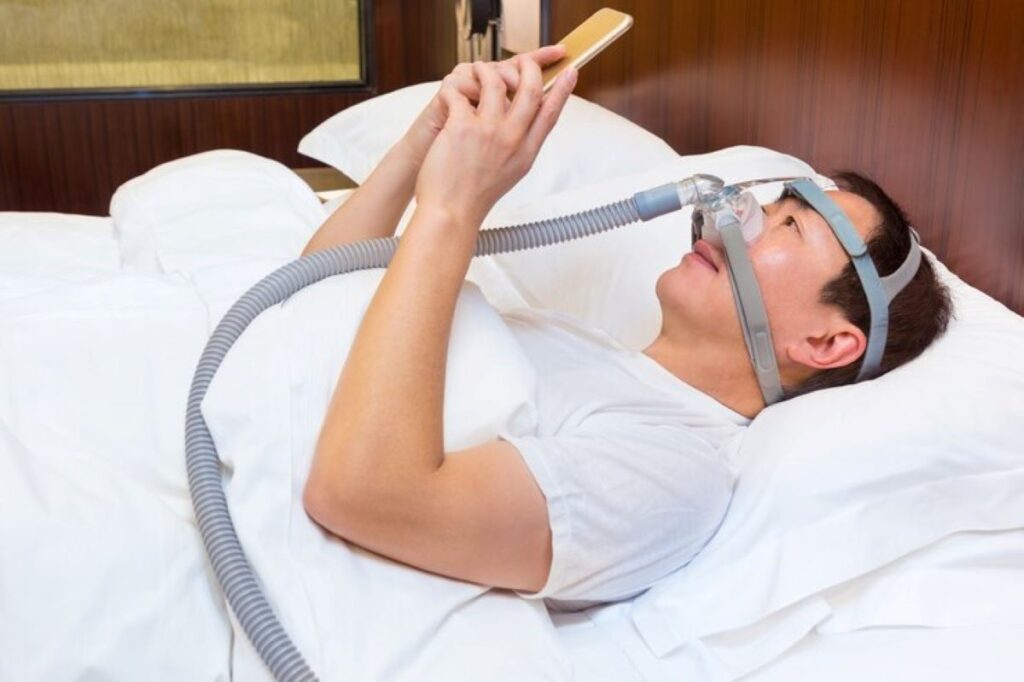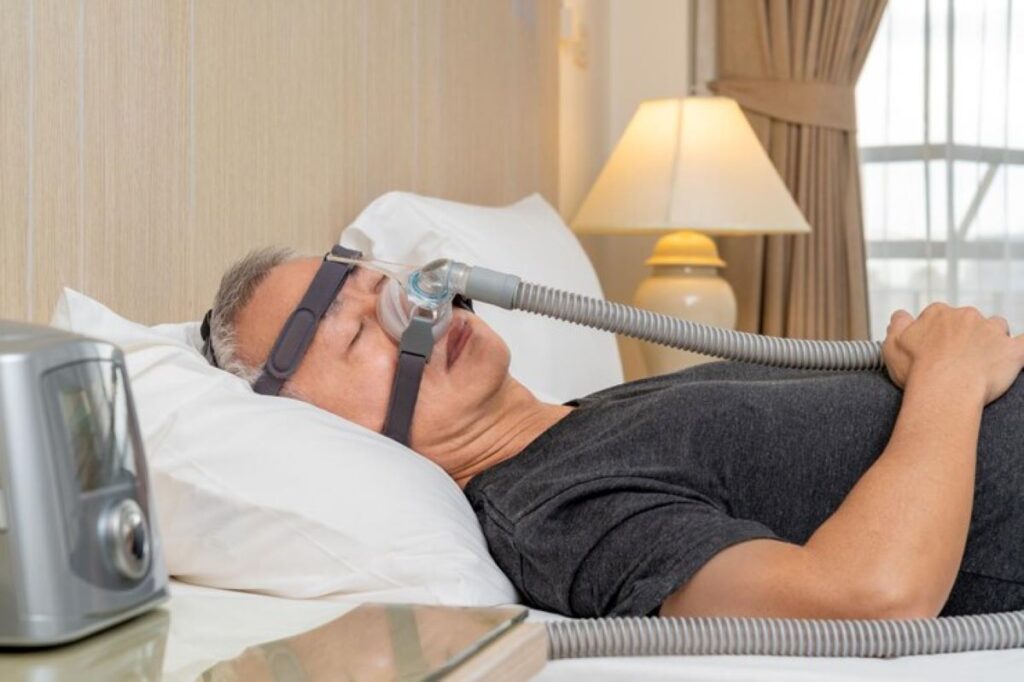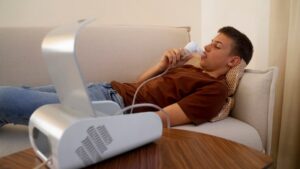A Complete Guide to Buying a CPAP Machine for Sleep Apnea Treatment
Understanding sleep apnea and its implications
Sleep apnea is a common but often misunderstood condition that disrupts the flow of air during sleep. It manifests primarily in two forms: obstructive sleep apnea (OSA) and central sleep apnea (CSA). Understanding the nuances between these types is essential for effective treatment and management.
Obstructive sleep apnea occurs when the throat muscles intermittently relax and block the airway during sleep. This leads to restless nights, where breathing can cease for several seconds or even minutes, often accompanied by loud snoring. On the other hand, central sleep apnea is less common and arises from a failure of the brain to transmit signals to the muscles that control breathing.
What is sleep apnea?
In essence, sleep apnea is characterized by repeated interruptions in breathing throughout the sleep cycle. These interruptions can result in poor-quality sleep, excessive daytime fatigue, and a host of other health-related issues. Many individuals suffering from sleep apnea may be unaware of their condition until significant symptoms arise, often initially brought to attention by a partner or family member.
Diagnosing sleep apnea typically involves a sleep study, which can be conducted in a sleep clinic or potentially even at home. Here, a range of factors are monitored, including heart rate, breathing patterns, and blood oxygen levels, providing critical insights into an individual’s nocturnal health. In recent years, advancements in technology have led to the development of portable sleep monitoring devices, making it easier for individuals to assess their sleep patterns without the need for a hospital visit. If you or a loved one is diagnosed with sleep apnea, it’s essential to explore treatment options, and one of the most effective solutions is to buy CPAP machines, which can help regulate breathing during sleep and improve overall sleep quality.
How does sleep apnea affect your health?
The implications of sleep apnea extend far beyond mere fatigue. Left untreated, conditions like hypertension, heart disease, stroke, and diabetes can be exacerbated, leading to serious health complications. Furthermore, the risk of accidents due to drowsiness increases, affecting not only personal safety but also public safety in professions requiring alertness.
Moreover, the mental health aspects cannot be overlooked, as individuals with untreated sleep apnea often report issues such as anxiety and depression. The constant cycle of interrupted sleep can lead to a decrease in cognitive function, affecting memory, concentration, and decision-making abilities. This cognitive decline can have a ripple effect on personal relationships and professional performance, creating a challenging cycle that is difficult to escape. Thus, understanding the seriousness of sleep apnea allows individuals to seek appropriate treatment, ultimately enhancing their quality of life. Additionally, lifestyle modifications such as weight management, regular exercise, and avoiding alcohol can significantly improve symptoms, empowering individuals to take control of their health and well-being.
The role of CPAP machines in treating sleep apnea
Continuous Positive Airway Pressure (CPAP) machines have revolutionised the treatment landscape for those with sleep apnea. By providing a steady stream of air through a mask, these machines prevent airway collapse during sleep, ensuring that breathing remains uninterrupted.
For many users, CPAP therapy significantly improves sleep quality, daytime alertness, and overall health. The introduction of CPAP therapy can be a transformative experience, allowing individuals to regain their vitality and improve their overall well-being. Moreover, studies have shown that consistent use of CPAP can reduce the risk of associated health complications, such as cardiovascular disease, hypertension, and diabetes, which are often exacerbated by untreated sleep apnea. This highlights the importance of timely diagnosis and intervention for those at risk.
What is a CPAP machine?
A CPAP machine is a device designed to deliver continuous airflow to individuals with sleep apnea. It typically consists of a motor that generates air pressure, a hose that directs the air, and a mask worn over the nose or mouth while sleeping. Initially developed for obstructive sleep apnea, CPAP machines have now become prominent in treating various forms of sleep-disordered breathing. In recent years, advancements in technology have led to the development of more compact and quieter models, making them even more user-friendly and accessible.
These devices not only mitigate the symptoms of sleep apnea but also enhance the quality of sleep for many users. It’s no surprise that they are often viewed as a first-line treatment option by healthcare professionals. Additionally, the variety of masks available—from nasal pillows to full-face masks—allows users to choose a design that best suits their comfort and sleeping style, further promoting adherence to therapy.
How does a CPAP machine work?
The mechanics of a CPAP machine are relatively straightforward. Once activated, the machine draws in ambient air and pressurises it. This pressurised air is delivered through a tube to the mask, which the user wears while they sleep. The continuous airflow acts as a splint, keeping the airway open and allowing for uninterrupted breathing.
It’s worth noting that there are various settings on the machine that can be adjusted to cater to the specific needs and comfort of the user. Regular consultation with a healthcare provider is vital to ensure that settings are optimal for treating the individual’s condition. Furthermore, many modern CPAP machines come equipped with built-in humidifiers, which help to alleviate dryness in the airways and enhance overall comfort during use. This feature is particularly beneficial for those who may experience nasal congestion or irritation, making the transition to CPAP therapy smoother and more tolerable.
Factors to consider when buying a CPAP machine
Purchasing a CPAP machine is a significant investment, requiring careful consideration of several factors to ensure that the machine meets your specific needs and preferences.
Understanding your specific needs
Before making a purchase, it’s crucial to assess your unique requirements. Speak to your healthcare provider to discuss the severity of your sleep apnea and whether a simple CPAP or a more advanced device is required. Personal comfort, facial structure, and any relevant medical history should also be considered.
Furthermore, consider how often you’ll be travelling and whether you need a portable machine for those trips. Travel-friendly units are generally more compact and lightweight, making them easier to transport.

Evaluating machine features and specifications
Today’s CPAP machines come with a myriad of features designed to enhance user experience. Some include built-in humidifiers to moisturise the air, reducing discomfort caused by dry air. Additionally, advanced models have auto-adjusting pressures, meaning they can automatically respond to breathing patterns for optimal comfort.
It’s also vital to check for noise levels, as some machines are quieter than others. A silent machine can contribute to both personal comfort and a better sleeping environment for your partner.
Considering the cost and your budget
CPAP machines can range from affordable to quite expensive. Securing insurance coverage or identifying potential payment plans can be beneficial in easing the financial burden. It’s essential to consider the long-term investment aspect, as choosing a suitable machine can result in a healthier lifestyle and reduced medical costs over time.
Additionally, budgets should also factor in ancillary items such as replacement masks, hoses, and filters, which will need to be purchased periodically to maintain optimal performance.
Different types of CPAP machines
With several types of CPAP machines available, understanding their differences can help you make an informed decision about which one is right for you.
Standard CPAP machines
Standard CPAP machines deliver a consistent level of air pressure. They are straightforward to use and typically more affordable, making them a popular choice for many who have been newly diagnosed with sleep apnea.
These machines are perfect for individuals whose conditions are stable and do not require variable pressure adjustments throughout the night. Many standard models incorporate humidifiers for enhanced comfort while sleeping.
Auto-adjusting CPAP machines
In contrast, auto-adjusting CPAP machines are designed with advanced technology that senses airflow resistance. They automatically adjust the pressure delivered throughout the night based on your individual breathing patterns. This feature makes them ideal for people whose sleep apnea severity may change throughout the night.
Although slightly more expensive, these devices often provide a level of comfort that can be particularly beneficial for their users, improving compliance and overall sleep quality.
Bi-level CPAP machines
Finally, bi-level CPAP machines offer two pressure settings: one for inhalation and a lower one for exhalation. This can be beneficial for those who struggle with the continuous pressure of standard CPAP machines or have more complex sleep apnea scenarios.
They are often prescribed for more severe cases of sleep disordered breathing and can aid in giving users a more comfortable experience at night. Understanding the specific requirements of your condition will aid in selecting the appropriate type of CPAP machine.

How to maintain and clean your CPAP machine
Proper maintenance and cleaning of your CPAP machine are vital to ensure its longevity and effectiveness. Regular upkeep also helps to prevent bacterial growth and other potential health issues.
Daily cleaning routine for your CPAP machine
A simple daily cleaning routine can significantly extend the life of your CPAP equipment. Begin by removing the mask and washing it in warm, soapy water. Rinse well and let it air dry. The humidifier chamber should also be emptied, washed, and dried if it is used.
Additionally, it’s advisable to check the tubing for any cracks or blockages, ensuring obstructive sleep apnae. Lastly, ensure that the machine’s exterior is wiped down with a damp cloth to maintain hygiene.
Weekly deep-cleaning process
On a weekly basis, you should engage in a more thorough cleaning regimen. This involves soaking the mask, tubing, and humidifier in mild soap and warm water for around 30 minutes. Rinse thoroughly and allow all components to air dry away from direct sunlight.
Lastly, remember to replace filters as recommended, usually every month, to preserve optimal performance. Keeping your CPAP machine clean and well-maintained not only promotes longevity but also maximises the therapeutic benefits it offers.
Related : Where to Find the Best CPAP Machines Online for Convenience


